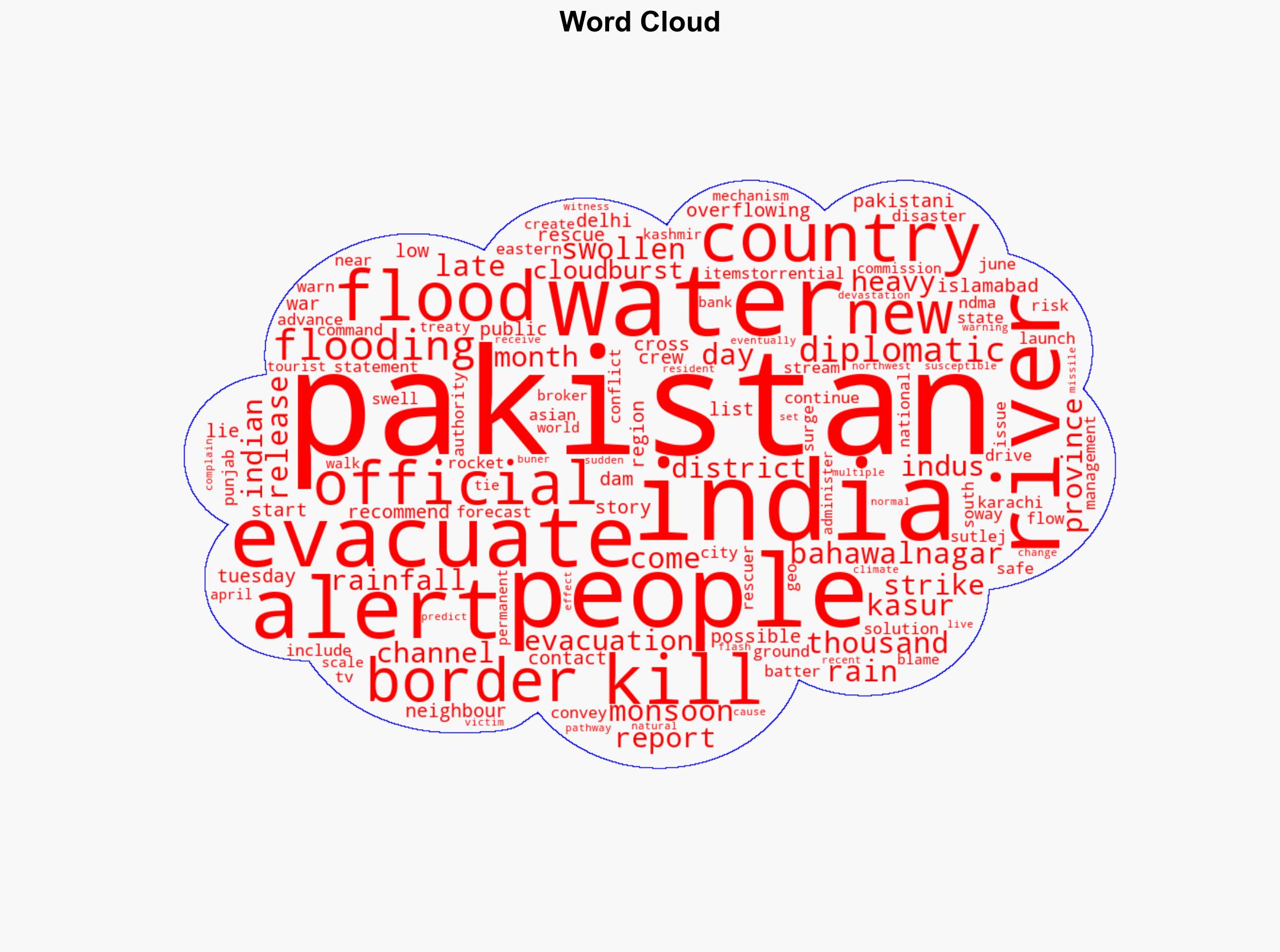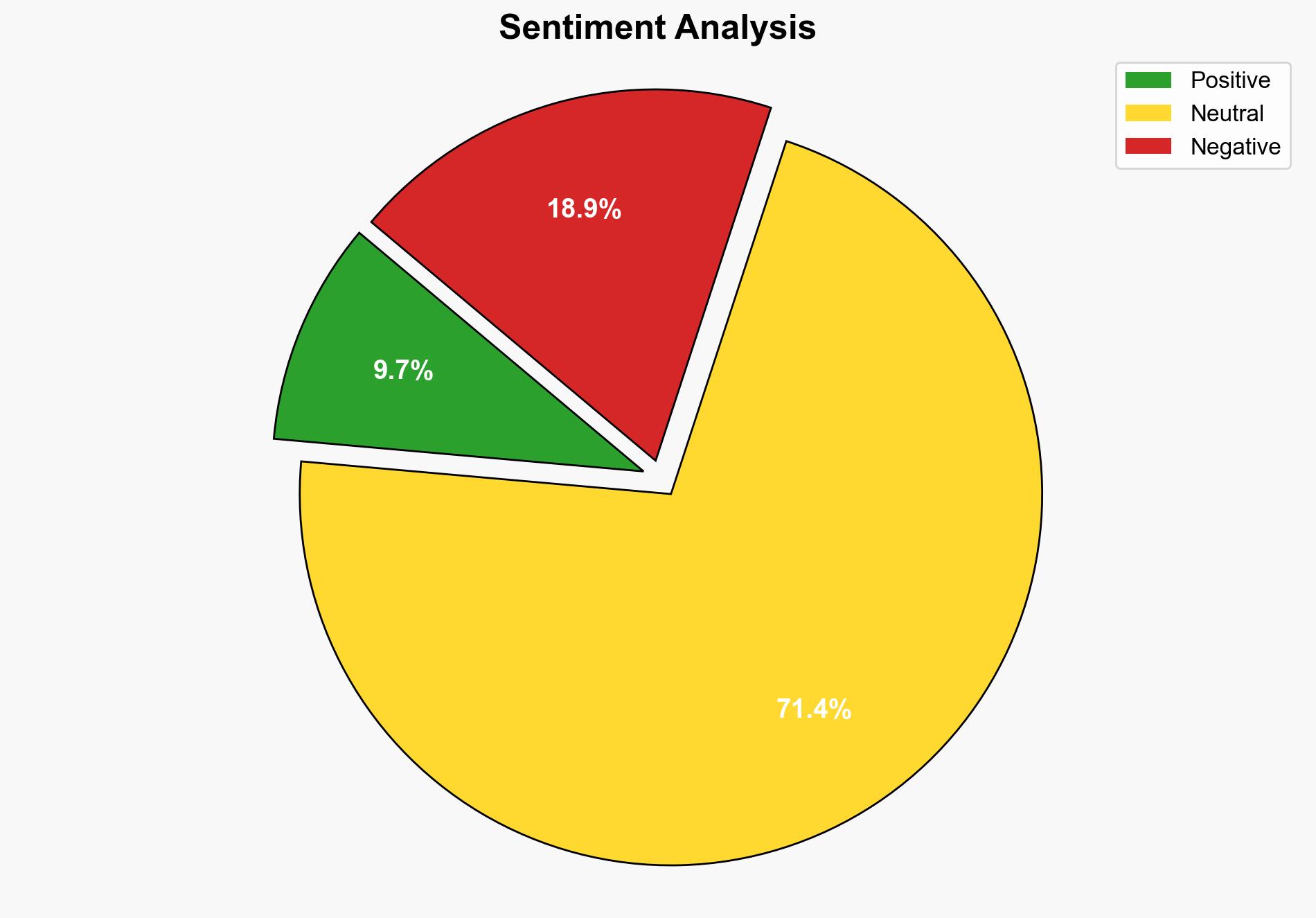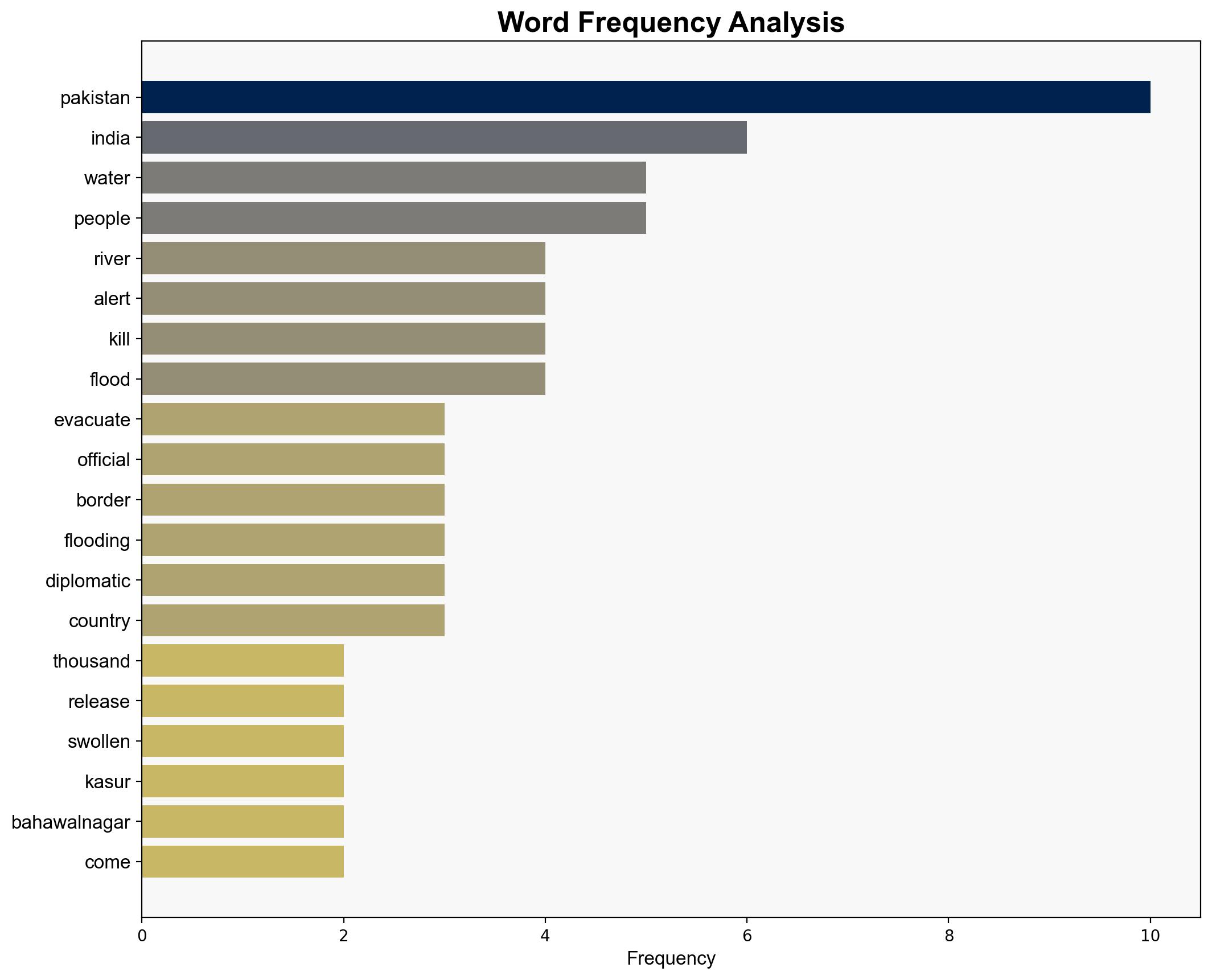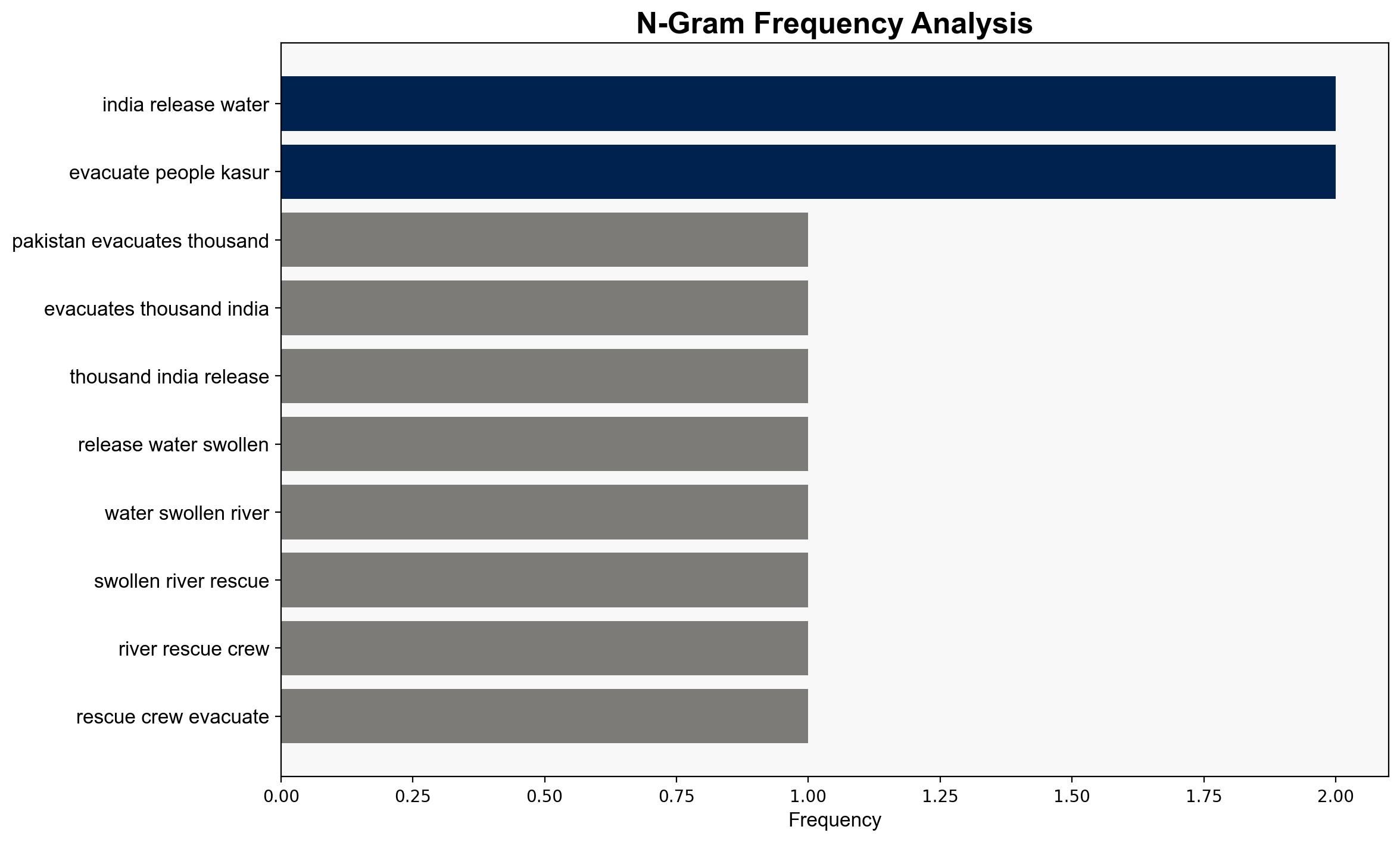Pakistan evacuates thousands as India releases water from swollen rivers – Al Jazeera English
Published on: 2025-08-26
Intelligence Report: Pakistan evacuates thousands as India releases water from swollen rivers – Al Jazeera English
1. BLUF (Bottom Line Up Front)
The most supported hypothesis is that the release of water by India is primarily a response to natural monsoon conditions, with a moderate confidence level. However, the geopolitical context and historical tensions between India and Pakistan necessitate careful monitoring for any potential escalation. It is recommended to enhance diplomatic communication channels to prevent misinterpretation and manage cross-border water management effectively.
2. Competing Hypotheses
1. **Natural Disaster Response Hypothesis**: The release of water by India is a routine response to manage monsoon-induced overflow in dams, with no intentional geopolitical motive. This is supported by the timing of monsoon rains and similar historical precedents.
2. **Geopolitical Maneuver Hypothesis**: The water release is a strategic move by India to exert pressure on Pakistan amidst ongoing tensions, potentially exploiting natural conditions to achieve geopolitical aims. This hypothesis considers the lack of recent diplomatic contact and historical conflicts over water resources.
3. Key Assumptions and Red Flags
– **Assumptions**: The Natural Disaster Response Hypothesis assumes that India’s actions are purely driven by environmental factors and that existing water treaties are being honored. The Geopolitical Maneuver Hypothesis assumes a deliberate strategic intent behind the water release.
– **Red Flags**: Lack of direct communication between India and Pakistan on this issue could exacerbate tensions. The absence of detailed data on water levels and dam management practices raises questions about transparency.
4. Implications and Strategic Risks
– **Cascading Threats**: Potential for increased flooding in Pakistan could lead to humanitarian crises, economic disruption, and internal displacement.
– **Geopolitical Risks**: Misinterpretation of actions could escalate into broader diplomatic or military tensions. Historical animosities over water rights could be reignited.
– **Psychological Impact**: Public perception in Pakistan may view this as an aggressive act, influencing national sentiment and policy responses.
5. Recommendations and Outlook
- Enhance diplomatic engagement between India and Pakistan to establish clear communication and cooperative water management strategies.
- Conduct joint assessments of water levels and dam management to ensure transparency and build trust.
- Scenario Projections:
- **Best Case**: Improved bilateral cooperation on water management, reducing flood risks and enhancing regional stability.
- **Worst Case**: Escalation of tensions leading to military confrontations or economic sanctions.
- **Most Likely**: Continued diplomatic standoff with periodic negotiations under international mediation.
6. Key Individuals and Entities
– Pakistan’s National Disaster Management Authority (NDMA)
– Indus Water Commission
– Geo News TV Channel
7. Thematic Tags
national security threats, regional focus, water management, India-Pakistan relations




